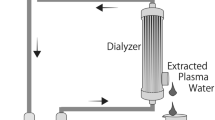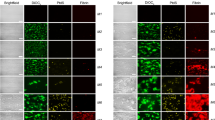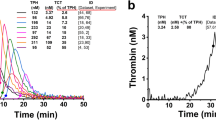Abstract
SINCE Hageman factor (HF) was found to participate in fibrinolytic activity1,2 several investigations have been carried out to explore its role in fibrinolysis. Iatridis and Ferguson3, in a detailed analysis of this phenomenon, suggested that Hageman factor has a lysokinase activity which converts plasminogen-proplasminoplastin (proactivator) into plasminoplastin (activator). Aznar et al.4 investigated the fibrinolytic activity of Hageman factor by means of thrombelastography and concluded that the active form itself has a similar character to that of the plasmatic proactivator. Haanen et al.5 showed that the fibrinolytic activity of a purified Hageman factor is only measurable in the presence of plasminogen, and therefore Hageman factor is an activator of plasminogen. But Iatridis and Ferguson3 had shown that chicken plasma, which is deficient in proplasminoplastin (proactivator) and in Hageman factor, did not develop any plasminoplastin (activator) activity, despite the addition of streptokinase or kaolin-SF (surface factor or activation product). Thus, from this experiment and from others using normal or Hageman deficient plasmas, they concluded that activated Hageman factor is only efficient for the generation of endogenous plasminoplastin when its precursor (the proplasminoplastin) is available.
This is a preview of subscription content, access via your institution
Access options
Subscribe to this journal
Receive 51 print issues and online access
$199.00 per year
only $3.90 per issue
Buy this article
- Purchase on Springer Link
- Instant access to full article PDF
Prices may be subject to local taxes which are calculated during checkout
Similar content being viewed by others
References
Niewiarowski, S., and Prou-Wartelle, O., Thrombos. Diathes. Haemorrh. (Stuttg.), 3, 593 (1959).
Iatridis, S. G., and Ferguson, J. H., Thrombos. Diathes. Haemorrh. (Stuttg.), 6, 411 (1961).
Iatridis, S. G., and Ferguson, J. H., J. Clin. Invest., 41, 1277 (1962).
Aznar, J., Lopez Borrasca, A., Calatayud, R., and Barata, J. J., Rev. Clin. Esp., 89, 276 (1963).
Haanen, C., Schoenmakers, J. G., and Morselt, G. E., Tenth Congr. Intern. Soc. Haemat. G, 53 (1964).
Holemans, R., and Roberts, H. R., J. Lab. and Clin. Med., 64, 784 (1964).
Kamel, K., Cumming, R. A., and Howard Davies, S., Nature, 200, 479 (1963).
Phillips, L. L., Skrodelis, V., and Wolff, J. A., Acta Haemat., 30, 244 (1963).
Nossel, H. L. (F. A. Davis Co., 1964).
Waaler, B. A., Scand. J. Clin. Lab. Invest., 11, Supp. 37 (1959).
Iatridis, S. G., and Ferguson, J. H., J. App. Phys., 18, 337 (1963).
Author information
Authors and Affiliations
Rights and permissions
About this article
Cite this article
IATRIDIS, P., FERGUSON, J. Plasminoplastin Generation Test− of Normal, HF−, PTA−, X−, PTC− and AHF− Platelet-poor Plasmas: Evidence that only HF− Plasma has an Abnormal Fibrinolytic Activity. Nature 207, 1404–1405 (1965). https://doi.org/10.1038/2071404a0
Published:
Issue Date:
DOI: https://doi.org/10.1038/2071404a0
Comments
By submitting a comment you agree to abide by our Terms and Community Guidelines. If you find something abusive or that does not comply with our terms or guidelines please flag it as inappropriate.



